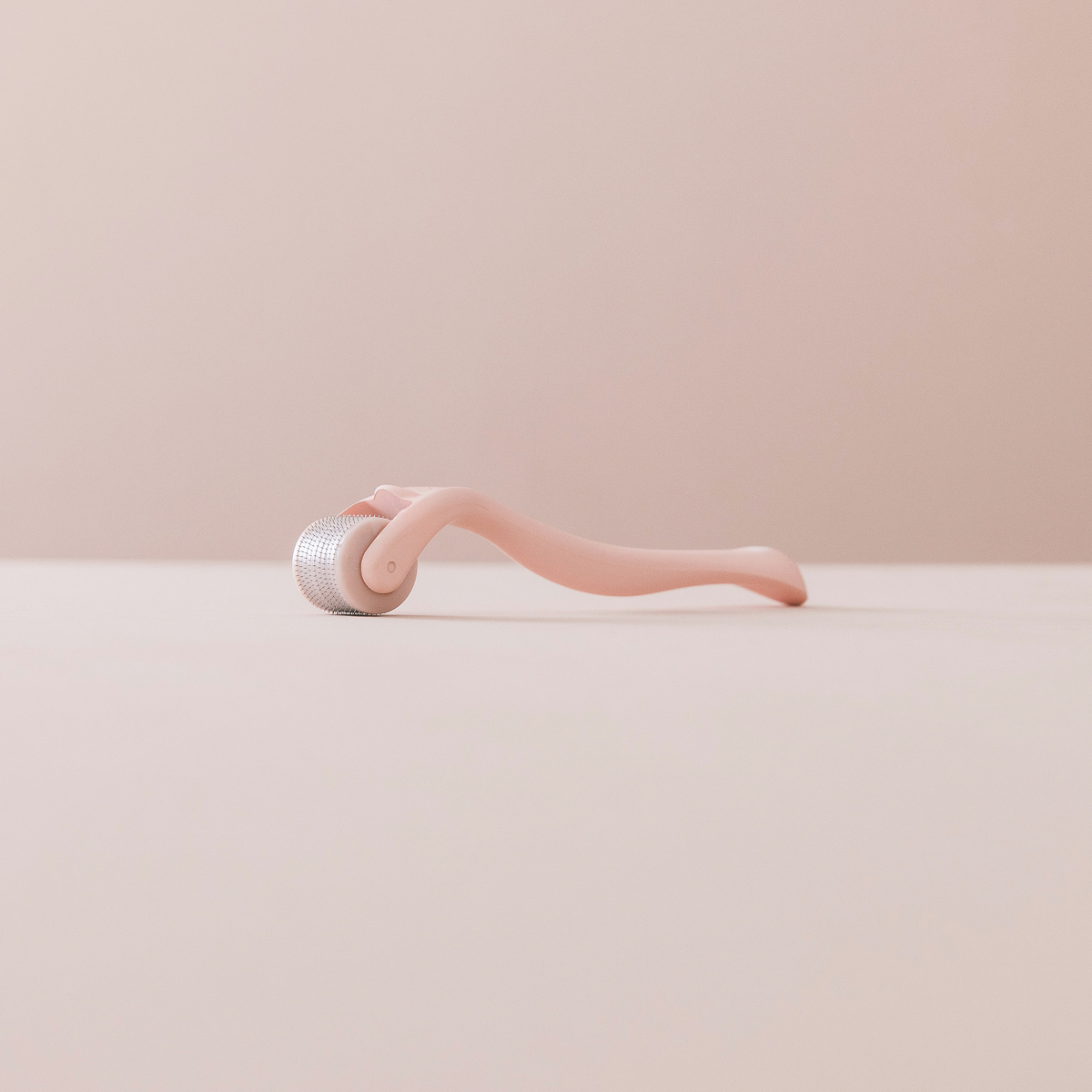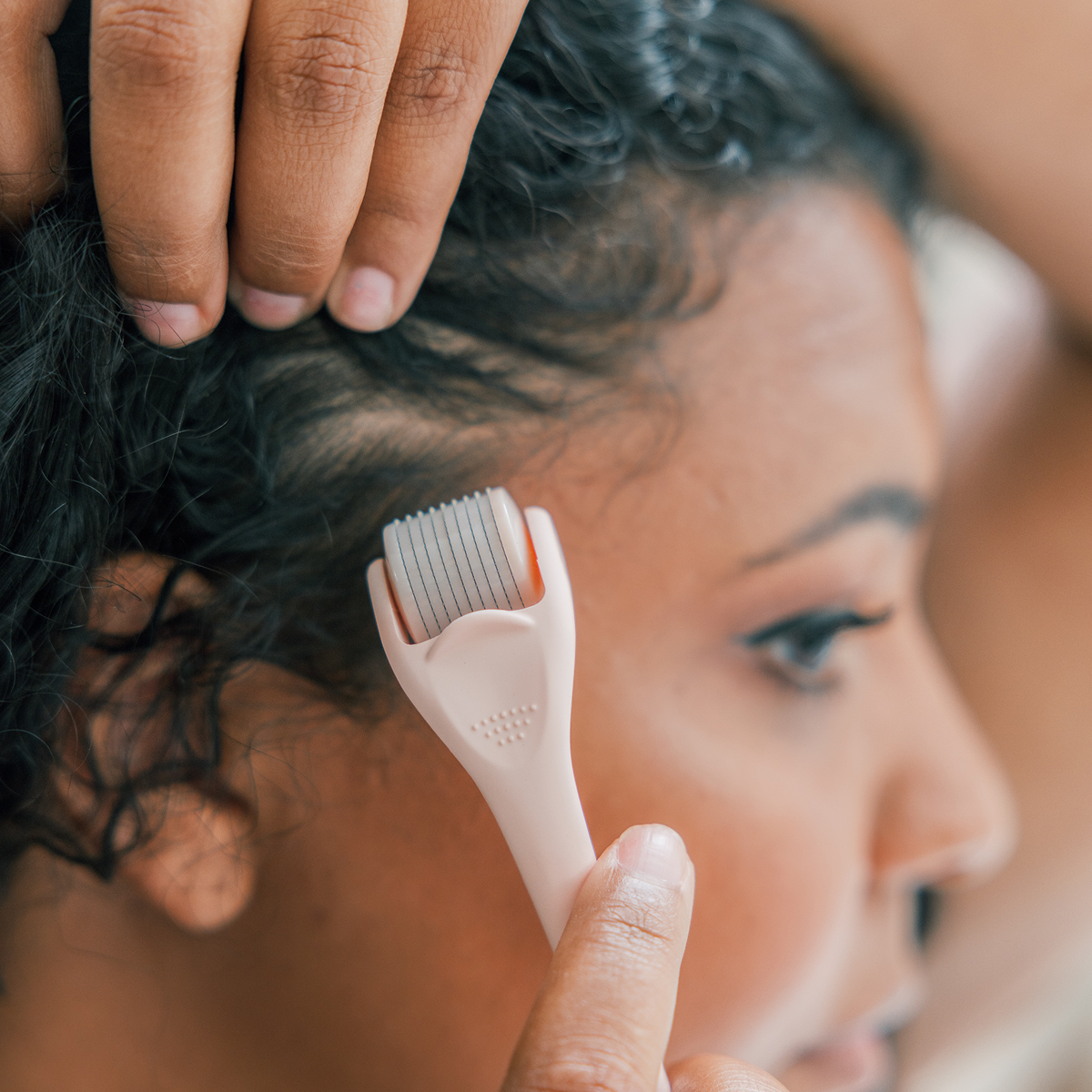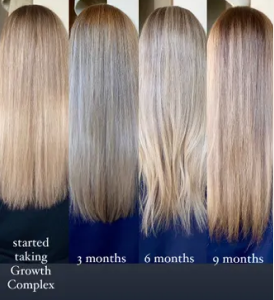If you’ve ever stood in the beauty aisle holding a bottle labeled “Volumizing,” “Thickening,” or “Anti-Hair Loss Shampoo,” wondering if it’s too good to be true—this post is for you.
Let’s get one thing straight: most thinning hair shampoos don’t treat the root cause of hair loss. And many of them rely on clever marketing, not meaningful science, to sell you hope in a bottle.
What Thinning Hair Shampoo Claims to Do
These shampoos usually promise one or more of the following:
- Reduce hair shedding
- Stimulate growth
- Thicken the appearance of strands
- Support scalp health
But the reality is… most of these claims are surface-level.
The Big Problem: Shampoo Only Works on the Surface
Here’s the truth: shampoo is a rinse-off product. It stays on your scalp and hair for a grand total of 30–60 seconds. And while some ingredients may temporarily coat the hair shaft to make it look thicker, they don’t stimulate the hair follicle beneath the scalp—where real growth happens.
“Shampoos can make your hair look fuller, but they rarely do anything to stop actual thinning or regrow lost hair.” – Trichologist Insight
Common Marketing Tricks to Watch Out For
- “With Biotin!” — Sounds impressive, but biotin doesn’t absorb effectively through your scalp. It needs to be ingested to have real effects.
- “Clinically Proven Ingredients” — These may be present in trace amounts that aren’t effective, or only work when taken internally.
- “DHT Blocking Formula” — DHT (dihydrotestosterone) is a hormone linked to hair thinning, but blocking it externally through shampoo is rarely effective without systemic changes.
- “Natural & Organic” — While fewer toxins are always a win, this doesn’t automatically make a product effective for hair regrowth.
So… Is All Thinning Hair Shampoo a Scam?
No, not necessarily. Some shampoos can support a healthy scalp environment by reducing inflammation, cleansing buildup, or delivering ingredients like caffeine or niacin. These may slightly improve circulation or reduce follicle stress.
But here’s the key distinction:
Supporting scalp health is not the same as reversing hair loss.
What Actually Helps with Hair Thinning
Hair thinning is usually caused by one or more of the following:
- Hormonal imbalances (especially post-pregnancy, perimenopause, or PCOS)
- Nutritional deficiencies (iron, biotin, zinc, vitamin D, protein)
- Chronic stress and cortisol spikes
- Genetics
- Overstyling, heat damage, and harsh chemical treatments
The best approach is a holistic one that includes internal support (supplements, nutrition, sleep), external care (gentle styling, hydration, scalp massage), and consistency over time.
What to Do Instead of Relying on Shampoo
- Use shampoo for what it’s meant for: cleansing your scalp gently
- Look for sulfate-free, fragrance-free options that don’t strip natural oils
- Pair your external routine with an internal one—nutritional supplements, hydration, and lifestyle changes are crucial
- Be skeptical of miracle claims
The Bottom Line
We all want a quick fix—but when it comes to hair health, there’s no shortcut. If a shampoo claims it can completely reverse hair loss or regrow hair without any internal support, it’s likely exaggerating (if not outright lying).
Don’t fall for clever packaging and buzzwords. Focus on a hair care routine that supports your whole body—because that’s where real growth starts.



























